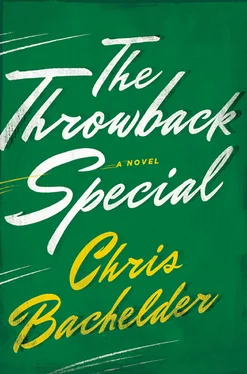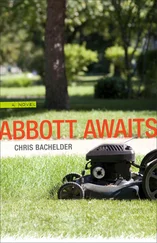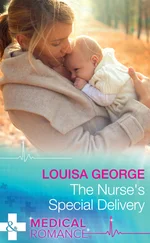“So which one is David?”
“He’s. . right there. Number twenty-three.”
“Blue or white?”
“Blue.”
“I don’t see him.”
“He’s right over there. Williams.”
“That’s not his last name, is it?”
“No. He’s playing someone else.”
“I see him.”
“He’s basically the only one out there who looks like he ought to be wearing that uniform.”
“Except that guy. Seven.”
“How did he get into this?”
“He said he was approached in the lobby. He basically had to interview for it. They were short a man.”
“Do they play a whole game?”
“Who knows?”
“Are you boys disappointed you didn’t get chosen?”
Paul and Brandon laughed at the absurd question. They were in fact disappointed, but they didn’t know it. Their wistful envy, by the time it made its way to their minds, had been transmuted to mild disdain and nonchalance and embarrassment. Paul said he had been in the elevator with some of the men, and they were ridiculous. Brandon agreed. He had seen them at breakfast. Just shoot him, Brandon said, if he’s doing that when he gets to be their age.
“Oh, they’re not so bad,” Sarah said.
Now there were two other spectators, a hooded man sitting in the first row of the bleachers, and another man in a baseball cap in the third row. They both sat hunched, still and watchful, arms crossed for warmth. The man in the baseball cap unclasped himself to pour a drink from a dented thermos. The men on the field progressed slowly through orchestrated series of movements, like tai chi masters in the park.
“There’s just some people who shouldn’t wear football pants,” Brandon said.
“These guys are going to get hurt ,” Paul said, and the man in the baseball cap turned his head briefly.
Someone on the field whistled. The football was placed on the ground in a patch of limp grass, then each team gathered in a huddle. The Giants huddle was rapidly generated and ill-formed. It dissolved almost immediately, and the defenders spread out in rough formation, awaiting the offensive alignment. The Redskins huddle was a perfect and intimate order, elemental and domestic, like a log cabin in the wilderness. Sarah and Deirdre, Brandon and Paul — they could perhaps sense in the huddle the origins of civilization. The men bent at the waist, hands on knees. Their helmets nearly touched inside the private sphere, where ten men listened for the secret, the invocation against evil. Their breath rose together from the center of the circle. They broke their huddle with a synchronized and disciplined clap, not bright but dulled by gloves and tape. They jogged to the line of scrimmage. Even the quarterback jogged. He wore number 7. His face mask was old-fashioned, a single bar. It was nearly ten o’clock, November 18. The rain fell steadily through the fog. Passing cars honked from the street, and a passenger in a truck yelled something mean-spirited and vulgar. It was odd, Paul thought, not to begin with a kickoff. He did not know what he hoped to see, failure or something else. The quarterback was under center. He looked to his right and then to his left. He looked again to his right, then to his left. He called, “Yellow forty-one,” his voice wavering. He called it again. The hooded man and the man with the baseball cap leaned forward, elbows on their knees. The sales associates sat closely together on the top row of the bleachers, their shoulders touching. The man in the yellow poncho stood completely still beneath the scoreboard. The ball was snapped then, and something happened, a single ruinous play, a discrete unit of chaos, violent and unlovely. The players grunted, their damp pads clacked through the fog. The entire play lasted perhaps five seconds. “Shit, flea flicker,” Brandon murmured as the running back pitched the ball back to the quarterback. “Uh-oh,” he said. “Throw it, throw it.” But the quarterback had not thrown the ball. He had stepped up into the pocket to avoid the rush, and then crumpled beneath a linebacker who had leaped onto his back. “That was not good,” Paul said. “Those old guys are not up for this.” Other defenders jumped on top of the quarterback, and a muffled scream came from the pile of bodies. Like a spell the scream lifted the players from the pile. One player, the one who had brought the quarterback down, gestured frantically to an empty sideline. He put his hands on his helmet. It was something the sales associates would remember.
Sarah stood up, nearly spilling her wine from the plastic cup. “What is he doing?” she said. “What was that? What happened? Is someone hurt?” The other associates shrugged and shook their heads. The hooded man in the first row of the bleachers was standing, applauding. The sound of his solitary appreciation was small in the night. Paul checked once more to see if the bottle was empty. Perhaps, he thought, it would be best to just go to bed early. Tomorrow was another long day of meetings. “Was that real?” Sarah said. “Is it over? Are they leaving?”
ROOM 324 WAS WARM and pungent, suffused with the smell of leaf rot and liniment. The muddy cleats teemed in a pile by the door. The men embraced, they tousled hair, they pounded one another on the shoulder pads. They drank inexpensive sparkling wine from the bottle, chewed unlit cigars, passed ice packs and Carl’s dull scissors. Their cheeks and knuckles were red from the cold, and their fingers were stiff. As was increasingly the case in recent years, several men were injured. They had pulled something, tweaked something, strained something. They grimaced, gripped the tender regions. They cut tape from their ankles and wrists, and it lay on the carpet in withered, valedictory strips. It was clear to everyone that this had been their best Throwback Special. Steven was challenged to deny it, and he would not. He said he just wanted to check his notes, but he could not check them because Bald Michael had hidden his notes in the second-floor vending alcove.
Tommy’s eyes shone wild with frantic relief. Because he had been so nervous, because he had been so concerned about handling the football, because he was not particularly dexterous or graceful, he had been the perfect Riggins, the standard. He had turned his shoulders too quickly, pitched it back too quickly. He had been utterly unconvincing in performing the flea flicker, which is to say he had been utterly convincing in performing Riggins. The best Riggins — Tommy had made this evident to all — was a bad Riggins. And Tommy, like other men, had somehow actualized himself while pretending to be someone else. He snuck up behind Myron with a finger to his lips. He clasped his arms around Myron’s stomach, and lifted him off the floor. Myron kicked Gil’s drink out of his hand, and he spilled his own drink on the comforter. Someone blotted halfheartedly with a sock. Tommy’s mustache, other men began to realize, was gone. He had, at some unknown point, removed it.
Randy held his hand in a bucket of ice. His Donnie Warren had been all truth. He had been elegantly wrecked by Taylor, and he wore the dark mud stain across his chest. He had even gotten his hand stepped on while lying on the ground, a nice touch. The hand, now submerged in a bucket of ice, looked both swollen and bony. Vince took a picture of Randy’s hand in the bucket, pink and blurry beneath the cubes like a creature whose existence has been rumored but not verified. Vince put his hand on Randy’s shoulder, and Randy allowed it, leaned into it. He got glimpses now and then. He sensed that the loss of his eyewear business might be a blessing. That was what people tended to say about the very worst things. That was the outrageous claim they made. In his garage where he did not kill himself he had constructed a prototype of a self-washing house window. He had used a voltaic cell to power the wiper, but his design called for solar. His hand might have been broken. It throbbed beneath the ice in a nearly pleasurable way.
Читать дальше












